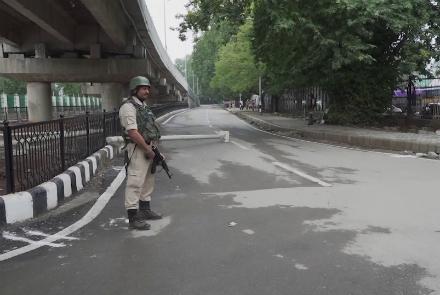After closed-door consultations of the Security Council on the situation in Jammu and Kashmir, Pakistani Ambassador Maleeha Lodhi today (16 Aug) told reporters that “the fact that this meeting took place is testimony to the fact that this is an international recognized dispute.”
Lodhi said “the voice of people of occupied Kashmir has been heard today in the highest diplomatic forum of the world. They are not alone. Their voices have been heard. Their plight, their hardship, their pain, their suffering, the occupation, and the consequences of that occupation, has been heard in the UN Security Council today.”
For his part, Indian Ambassador Syed Akbaruddin said that during the meeting, “there were some who tried to project an alarmist approach to the situation, which is far from the ground realities.”
Of particular concern, he said, “is that one state is using terminology of Jihad against and promoting violence in India, including by their leaders.”
Akbaruddin said, “using terror to try and push your goal is not the way that normal states behave. No democracy will acknowledge or accept talks when terror thrives. Stop terror, to start talks.”
Also talking to reporters, China’s Ambassador, Zhang Jun, said it was “obvious that the constitutional amendment by India has changed the status quo in Kashmir, causing tension in the region.”
Zhang pointed out that “India’s action has also challenged China’s sovereign interests and violated bilateral agreement on maintaining stability in the border area.”
The Indian Government announced last week that it was revoking the special status of the area of Kashmir that it administers, putting the region under tighter central Government control. Pakistan argues that the removal of the territory’s special status, which has a majority-Muslim population, violates international law.
The UN has long maintained an institutional presence in the contested area between India and Pakistan. According to the Security Council mandate given in resolution 307 of 1971, the UN Military Observer Group in India and Pakistan (UNMOGIP) observes and reports on ceasefire violations along and across the Line of Control and the working boundary between the South Asian neighbors in Jammu and Kashmir, as well as reports developments that could lead to ceasefire violations.
Secretary-General António Guterres appealed for ‘maximum restraint’ over the territory of Jammu and Kashmir on Thursday, which has been disputed by India and Pakistan, since the end of British rule in the late 1940s.

